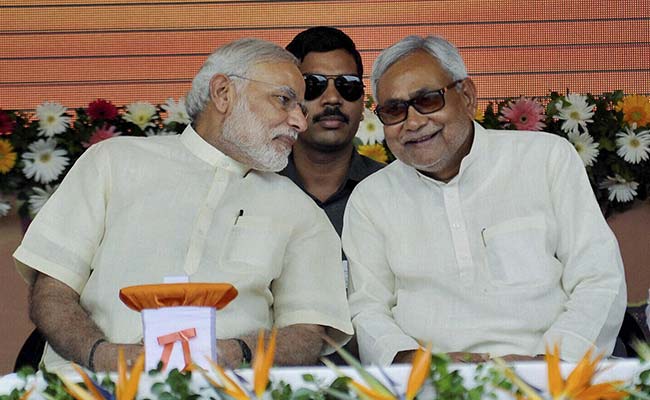
By stating his "full support" to Prime Minister Narendra Modi's abrupt cancellation of 500- and 1,000-rupee notes, Bihar Chief Minister Nitish Kumar has upset his two allies, the Congress and Lalu Yadav, who partner in his government. In 2013, Mr Kumar ended his nearly two-decade long alliance with the BJP over its decision to pick Mr Modi as its presumptive Prime Minister. He has said that his backing of the PM now should not be seen as a political recalibration and anyone who suggests that is "trying to politically assassinate him."
Here are 10 reasons for Mr Kumar's unexpected and unstinting support for the PM, with whom he rarely shares common ground:
Mr Kumar, 65, who is serving a third consecutive term as Chief Minister draws his popularity from an image of an efficient administrator committed to principled governance.
Mr Kumar and his team have assessed that despite the chaos caused by the sudden cancellation of old notes, there is public faith in the PM's declaration that the move will flush out black money.
He has reportedly calculated that across the country, there is strong sentiment against corruption and wants to promote himself as a leader willing to work with the centre to fight graft despite differences over ideological and other issues.
Mr Kumar has yet to respond to an offer from Finance Minister Arun Jaitley to join a committee of five Chief Ministers who will examine the impact of demonetization and advise the government on how to plan the transition to a cashless economy, particularly in rural India.
The PM has declared that the cancellation of old notes will weed out counterfeited 500-rupee bills often used by terrorists. Fake currency has been a long-standing problem in Bihar, partly because of its highly porous border with Nepal and also because of the extreme shortage of banks in most parts of the state.
The centre has claimed, including in the Supreme Court, that with deposits accruing in banks (nearly 90 billion dollars of old notes have been turned in), loans will get cheaper. Mr Kumar and his team believe that governments like his will also be able to borrow at lower rates to fund important welfare schemes.
He has repeatedly said that the next step for the PM must involve a concerted effort to target benami or proxy-owned property, often used to park massive sums of black money. Mr Kumar believes this will eventually expose fake land deals which will free up property for government projects.
Mr Kumar is convinced that the clampdown on illicit cash will cut off bootleggers at a time when he is pushing to enforce an extremely strident prohibition law in Bihar.
Though he is aware that the economy will shrink in the immediate future because of the clampdown, which has affected consumer spending and is forecast to dent agricultural growth, Mr Kumar believes that an investment push which the government has promised will succeed in reviving the economy.
His team has advised him that companies who have won contracts for infrastructure projects in Bihar, for example, will get attractive loans and that could help speed up the completion of these projects

